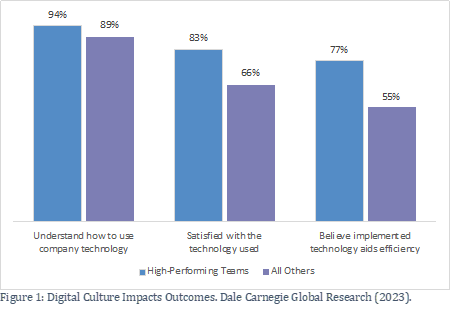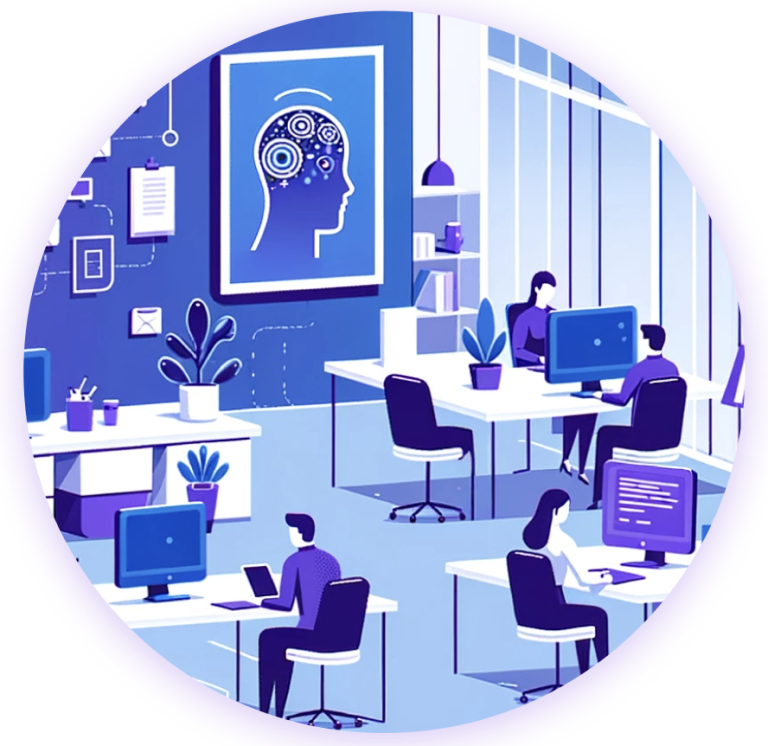Important Computer Skills for Workplace Success
Computer skills are crucial for workplace success. Here is a concise analysis of their importance and impact.
The demands of modern workplaces require employees to possess a range of computer skills to perform tasks efficiently. From basic skills like word processing and email management to advanced skills like data analysis and programming, computer literacy enhances productivity, communication, and problem-solving abilities.
Proficiency in using software and web-based tools, navigating digital platforms, and adapting to new technologies is essential to thrive in today’s digital-driven workforce. The ability to leverage computer skills enables employees to stay competitive, contribute effectively to team collaborations, and adapt to new methodologies and industry trends.
:max_bytes(150000):strip_icc()/GettyImages-654258714-59c40055054ad90011999198.jpg)
Credit: www.thebalancemoney.com
Technical Skills
Technical skills are essential for succeeding in today’s fast-paced workplace. These skills go beyond basic computer knowledge and involve proficiency in specific software programs and programming languages.
Software Proficiency
Proficiency in a variety of software programs is crucial for performing efficiently in the workplace. Familiarity with popular office suites such as Microsoft Office, Google Workspace, or Adobe Creative Cloud enables employees to create documents, spreadsheets, and presentations effectively.
Moreover, being proficient in project management software like Asana, Trello, or Basecamp allows teams to collaborate seamlessly, track progress, and meet deadlines effortlessly.
Additionally, possessing expertise in customer relationship management (CRM) tools like Salesforce or HubSpot grants employees the ability to manage customer interactions, generate reports, and automate various processes to enhance productivity.
Furthermore, being adept at using accounting software like QuickBooks or Xero facilitates accurate bookkeeping, invoice creation, and financial analysis.
Programming Languages
Knowledge of programming languages is becoming increasingly valuable across various industries. While the choice of programming language may depend on the specific field, some languages are in high demand universally.
| Programming Language | Industry/Application |
|---|---|
| Python | Data analysis, web development, artificial intelligence |
| JavaScript | Web development, front-end development, interactive web elements |
| Java | Android development, enterprise-level applications |
| C++ | System software, game development, embedded systems |
| C# | Windows development, game development, virtual reality |
Having a solid understanding of programming languages empowers individuals to create custom solutions, automate repetitive tasks, and analyze data effectively. This skill set opens doors to various professional opportunities and enhances problem-solving capabilities in the workplace.
In conclusion, technical skills are vital to succeed in the modern workplace. Proficiency in software programs and programming languages enhances productivity, enables efficient collaboration, and opens doors to innovation and problem-solving. Investing time in developing these skills is crucial for achieving workplace success in the digital age.
Communication Skills
Enhancing workplace success hinges on mastering important computer skills, including effective communication techniques. These skills enable seamless interaction and collaboration, fostering productivity and creating a positive work environment.
Communication Skills Effective communication is a vital skill that every professional should possess to succeed in the workplace. Good communication skills not only enhance teamwork and collaboration but also promote clarity and understanding. In today’s digital age, communication takes place in various forms, including verbal and written communication. Possessing strong verbal and written communication skills can significantly improve your ability to express ideas, convey information, and build strong relationships with colleagues and clients.Verbal Communication
Verbal communication refers to the use of spoken words to convey messages and ideas. It involves not only what you say but also how you say it. When engaging in verbal communication, it is essential to speak clearly, confidently, and with proper etiquette. Effective verbal communication can help in presentations, meetings, and daily interactions in the workplace. Here are some key points to remember when it comes to verbal communication:- Speak clearly and articulate your words to ensure your message is understood.
- Use appropriate tone and volume to convey emotions and maintain professionalism.
- Engage in active listening to understand others and respond appropriately.
- Avoid interrupting others and show respect for their opinions and ideas.
- Ask questions to seek clarification and show interest in the conversation.
Written Communication
Written communication plays a crucial role in the workplace. It involves conveying information through written text, such as emails, memos, reports, and documentation. Clear and concise written communication is essential to ensure that your messages are understood accurately and effectively. Here are some tips to improve your written communication skills:- Organize your thoughts and structure your writing logically.
- Use proper grammar, punctuation, and spelling for easy comprehension.
- Avoid using jargon and technical terms that may confuse the reader.
- Be concise and to the point, keeping your message clear and focused.
- Proofread your writing to eliminate errors and enhance clarity.
Problem Solving Skills
Problem solving skills are crucial computer skills for workplace success. These skills enable individuals to analyze challenges and find effective solutions, fostering productivity and innovation in the workplace.
Critical Thinking
When it comes to problem solving, critical thinking is an essential skill that can help individuals navigate through complex situations. Critical thinking enables employees to approach problems from different angles, analyze information, and make well-informed decisions. This skill involves evaluating evidence, identifying patterns, and considering alternative solutions. By enhancing critical thinking skills, employees can become more efficient problem solvers, improving productivity and fostering innovation within the workplace.
Troubleshooting
Troubleshooting is a crucial skill for resolving technical issues and ensuring the smooth operation of computer systems. It involves identifying problems, analyzing their causes, and implementing effective solutions. Troubleshooting skills can help employees diagnose and fix hardware or software malfunctions, network connectivity issues, and other technical problems that may arise. A strong troubleshooting ability can save time and resources, minimize downtime, and allow employees to maintain a productive workflow.
Table:
| Benefits of Problem Solving Skills | Examples |
|---|---|
| Increased productivity | An employee quickly resolves an issue with a software application, preventing a workflow disruption. |
| Better decision making | An employee carefully evaluates different options before implementing a solution to a complex problem. |
| Innovation and creativity | An employee suggests a novel approach to a problem, leading to a more efficient process. |
| Improved teamwork | An employee effectively collaborates with colleagues to solve a challenging problem. |
Conclusion
In conclusion, problem solving skills, including critical thinking and troubleshooting, are vital for workplace success. These skills enable employees to approach challenges with a systematic and analytical mindset, resulting in improved decision making, increased productivity, and enhanced innovation. By continually nurturing and honing these skills, individuals can become invaluable assets to any organization.
Collaboration Skills
Collaboration skills are essential for workplace success as they enable individuals to work effectively in a team environment, fostering synergy and achieving shared goals. Having strong collaboration skills not only increases productivity but also promotes a positive work culture and enhances the overall success of an organization.
Teamwork
Being able to work effectively as part of a team is a crucial collaboration skill. Teamwork encourages cooperation, open communication, and the sharing of ideas, which all contribute to achieving team goals efficiently. A good team player is willing to listen to others, contribute their own ideas, and support their teammates in achieving common objectives. When individuals work together as a team, they can leverage their diverse skills and backgrounds to solve complex problems and create innovative solutions.
Conflict Resolution
Conflict is a natural part of any workplace, but having the skills to resolve conflicts effectively is crucial to maintaining a harmonious work environment. Conflict resolution involves the ability to identify and address conflicts in a timely manner, finding common ground, and generating mutually acceptable solutions. Strong conflict resolution skills not only help in overcoming challenges and disagreements but also foster stronger relationships among team members. By addressing conflicts constructively, individuals can maintain positive working relationships and ensure that team productivity is not compromised.
Time Management Skills
Developing strong time management skills is crucial for workplace success, especially in relation to important computer skills. These skills enable individuals to effectively prioritize tasks, meet deadlines, and enhance overall productivity.
Prioritization
When it comes to time management skills in the workplace, prioritization plays a crucial role. Prioritization is the ability to identify and focus on the most important tasks and activities that contribute to the overall goals and objectives of the organization.
Why is prioritization important?
- Helps you stay focused and organized
- Ensures you complete high-priority tasks first
- Prevents you from wasting time on low-value or unnecessary activities
With effective prioritization skills, you can allocate your time and energy efficiently, enabling you to meet deadlines, achieve targets, and enhance your productivity.
Task Management
Task management is another critical aspect of time management skills in the workplace. It involves planning, organizing, and executing tasks in an efficient and timely manner.
How can you improve task management skills?
- Break tasks into smaller, manageable parts
- Create a to-do list or use a task management tool
- Set realistic deadlines for each task
- Prioritize tasks based on their urgency and importance
- Avoid multitasking and focus on one task at a time
By effectively managing your tasks, you can avoid overwhelm, reduce stress, and ensure that you complete your responsibilities on time.

Credit: www.autonomous.ai

Credit: www.autonomous.ai
Frequently Asked Questions For Important Computer Skills For Workplace Success
What Are The Important Computer Skills For Workplace Success?
Important computer skills for workplace success include proficiency in Microsoft Office, data analysis, and multitasking. Additionally, knowledge of programming languages, cybersecurity, and cloud computing is beneficial. These skills enable employees to efficiently navigate digital environments, increase productivity, and adapt to evolving technological trends.
Why Computer Skills Are Important In The Workplace?
Computer skills are essential in the workplace because they enhance productivity and efficiency. They enable employees to perform tasks faster, access and analyze information, and communicate effectively. With computer skills, workers can adapt to new technologies, stay competitive in the job market, and contribute to the success of their organizations.
What Are The 5 Most Important Computer Skills To Learn?
The 5 most important computer skills to learn are programming, problem-solving, communication, data analysis, and cybersecurity. Mastering these skills will enhance your competitiveness in the digital era.
Conclusion
Mastering important computer skills is crucial for success in today’s workplace. Whether it’s proficiency in basic software like Microsoft Office or specialized skills such as data analysis or coding, these abilities can open doors to career advancement and increased productivity.
By continuously upgrading and expanding their computer skills, professionals can stay relevant in a digital-driven world and gain a competitive edge. So, invest time and effort into cultivating these essential skills, and watch your career soar to new heights.





